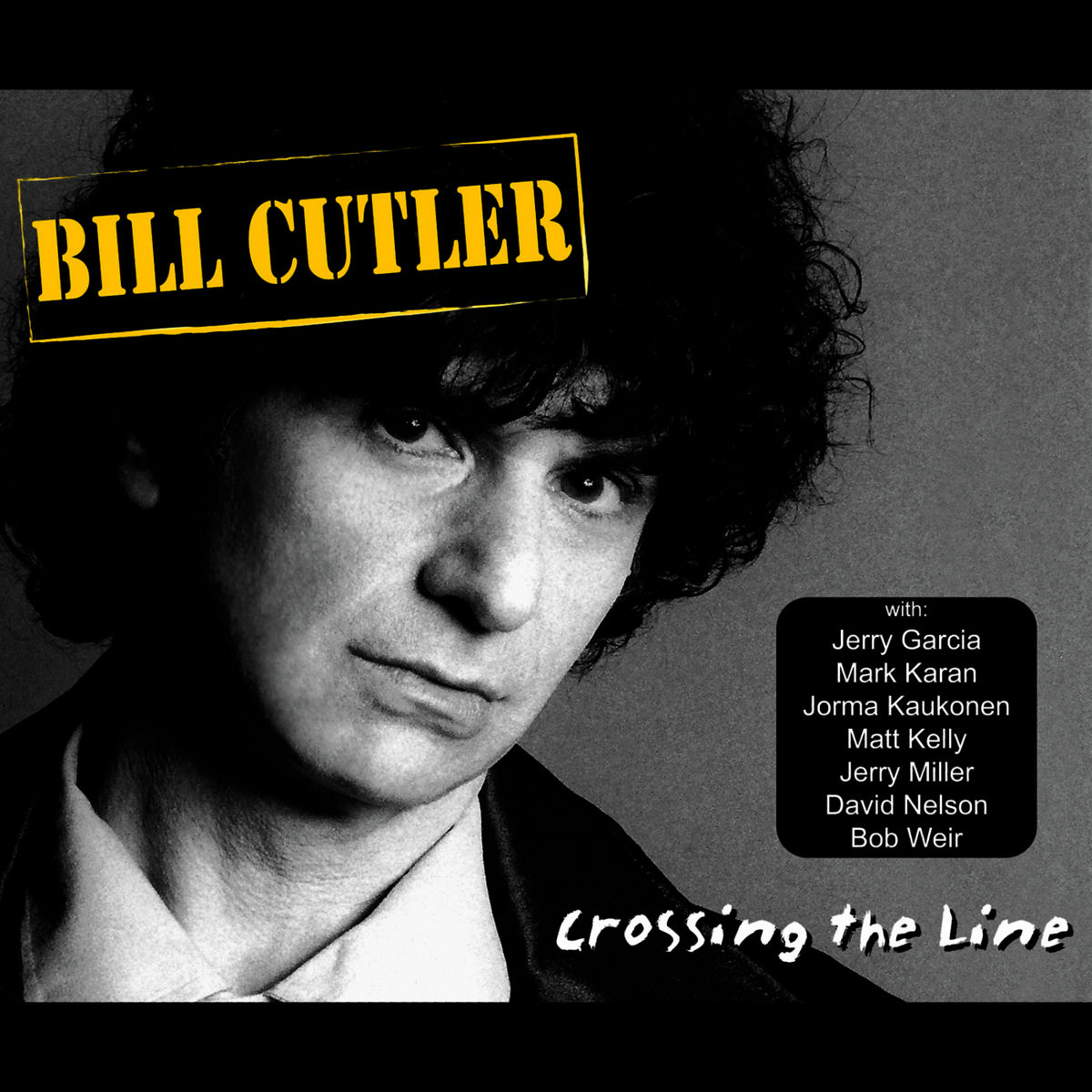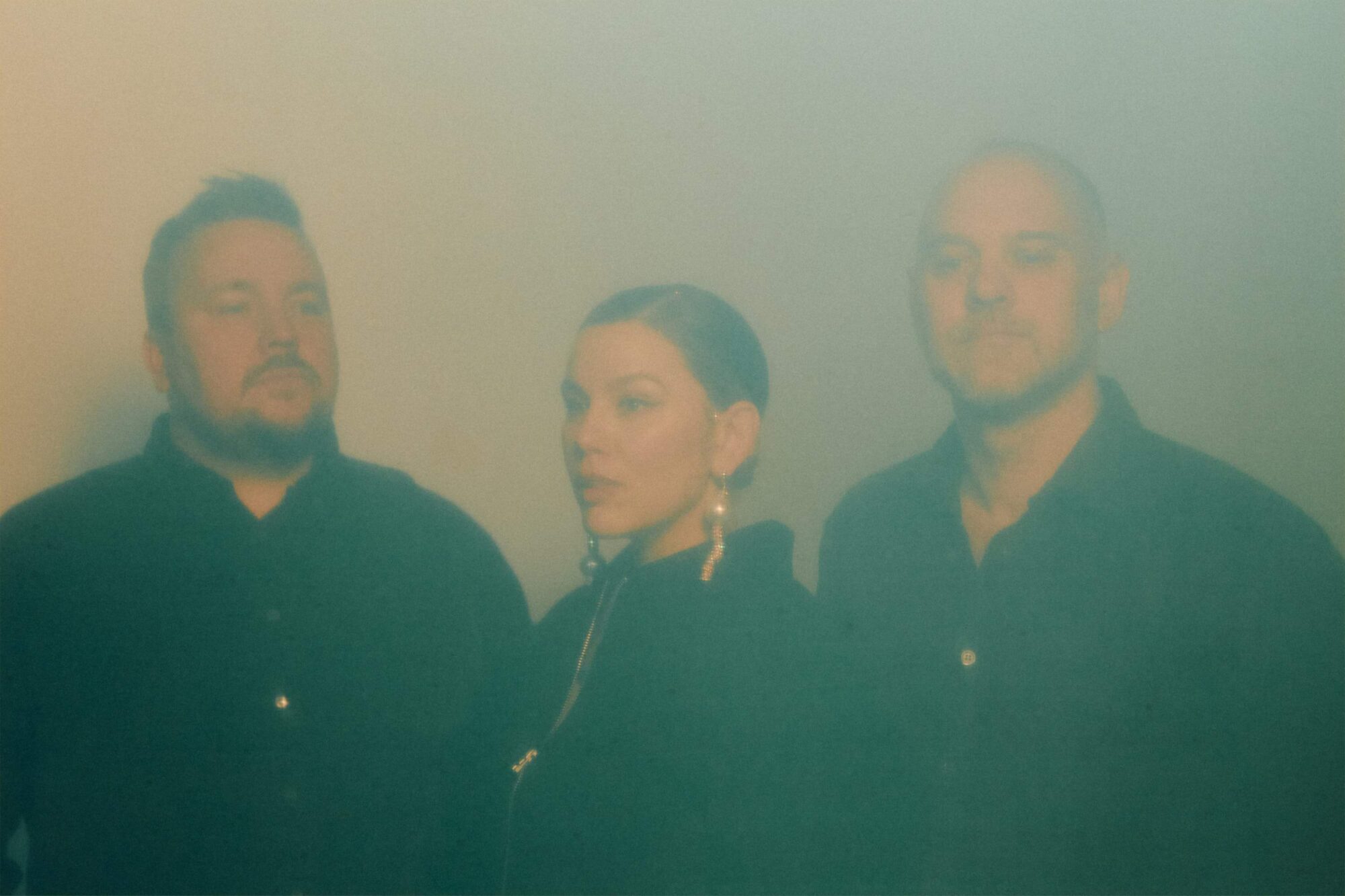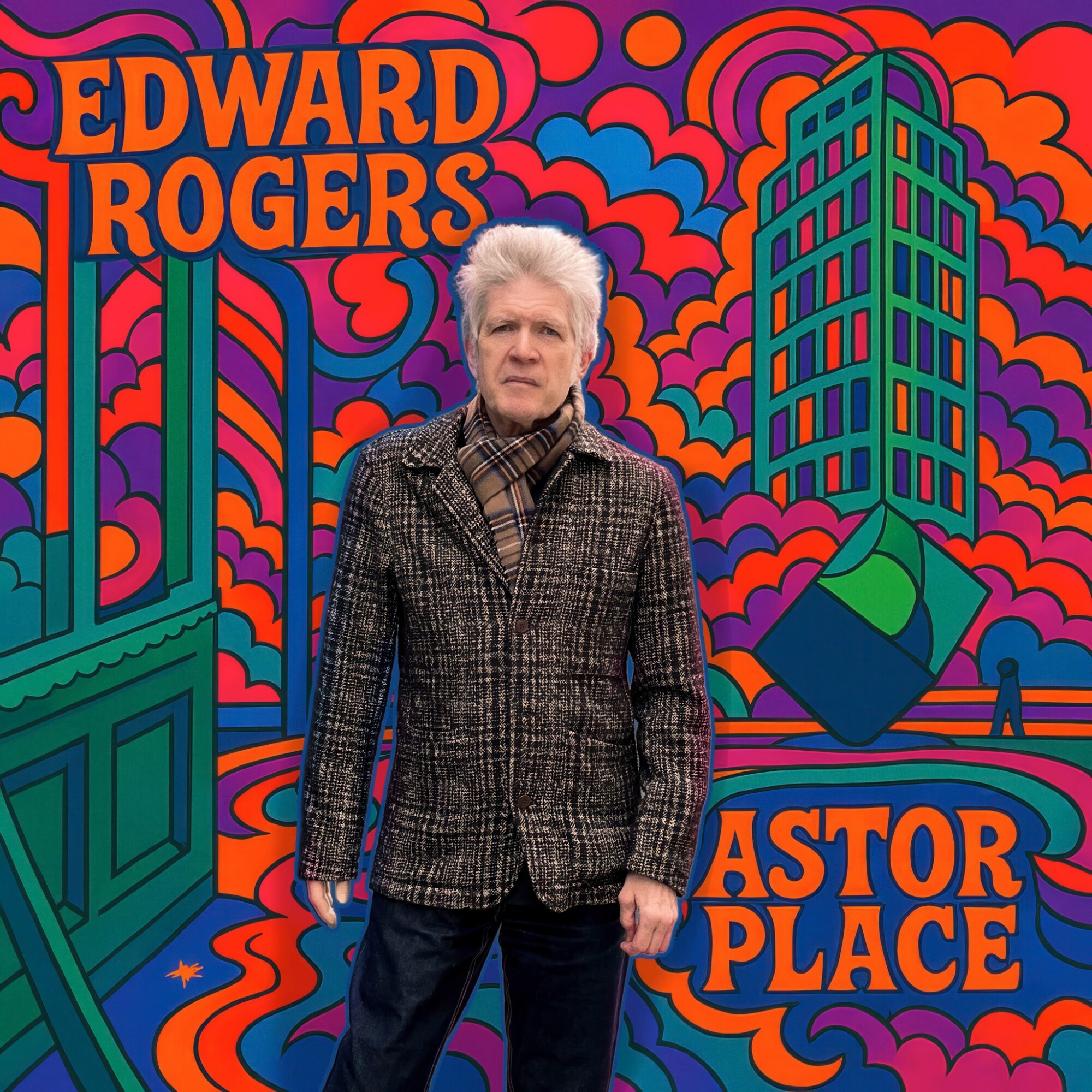Jakob Skøtt interview
While I’d heard a good bit of his other group Causa Sui, Jakob Skøtt’s solo work is an entirely different beast altogether. While Causa Sui explores the boundaries of traditional instrumentation like guitars, bass and the like, Skøtt’s solo work is very much simply an experiment in layering, specifically with drums and synthesizers, so far represented by three stellar albums comprised of varying levels of avant-garde, synthesized psychedelia and improvisation.
That’s not to say you can’t hear the same vein of mad scientist like experimentation running through the heart of both, it’s just that it’s taken in an entirely different direction in this case. Skøtt literally describes the sound as “lots of drums and lots of synthesizers”, saying “if people can dig that idea, they’ll probably dig the albums” and I have to say that to a fairly large degree I agree with that assessment. While I’ve heard a lot of people picking synthesizers back up over the past few years, they’re almost all invariably rooted in the growing retro-horror or giallo movements. Skøtt on the other hand is headed in a decidedly different direction, leaning much more towards the avant-garde side of things; the place where synthesized music has its’ real roots in this writers humble opinion. Crafting bizarre, alien soundscapes and pushing a swirling mass of noise to the outer reaches of the stratosphere, increasingly large groups of humming and sputtering synthesized UFOs dot the horizon, darting about in the listener’s peripheral vision the farther and farther you make it into one of Skøtt’s solo albums. Eventually, tiny men begin to crawl, no somehow they’re excreted, from the pitch-black crevices that dot the desolate grey landscape illuminated by shimmering beacons of light, they’re muttering unintelligible sounds in a sequence that’s so conceived it has to be a language of some sort, the twisted little homunculi’s own form of communication. The closer the strange creatures get the more out of control things become, but somehow you’re still simultaneously being rocketing out of the ionosphere into the deepest reaches of the blackness of space. As the G-force begins to take its toll reality itself unhinges like the jaw of an enormous cosmic snake devouring the completeness of eternity, lights flash by consuming everything, the very DNA of the universe unraveling into a visible, visceral psychedelic experience that washes over you like a cleansing religious peyote experience. While they were all produced under pretty different circumstances and times in Skøtt’s life his three albums have a real sense of coherency to them when viewed sequentially, progressing and evolving like a living bioorganic being with a mind of its’ own. It’s hard to really get into the nitty-gritty details of describing Skøtt’s sound as it’s so varied, diverse, expansive, and simultaneously inclusive of so many things, but the thing that I always seem to come back to about his work is the epic sense of grandeur and cosmic psychedelia that his music simply exudes from every pore. Expanding how people look at composition and instrumentation effortlessly seems to be something that Jakob Skøtt is almost entirely too talented at and it was a real pleasure to get to talk shop with him recently. While we focused mostly on his solo work, I did delve a little into his musical background with Causa Sui and his inimitable growth as an artist over the past decade or so, as well as his absolutely killer label El Paraiso which’s been growing with leaps and bounds over the past few years. Skøtt’s such a busy guy that even if you’re a rabid fanboy I almost guarantee there’s something interesting you’ll read here you haven’t seen, heard or read about anywhere else; there was no stone left unturned by this journalist, rest assured. So, with out further adieu I present to you Mr. Jakob Skøtt, enjoy – and remember to keep It Psychedelic Baby!
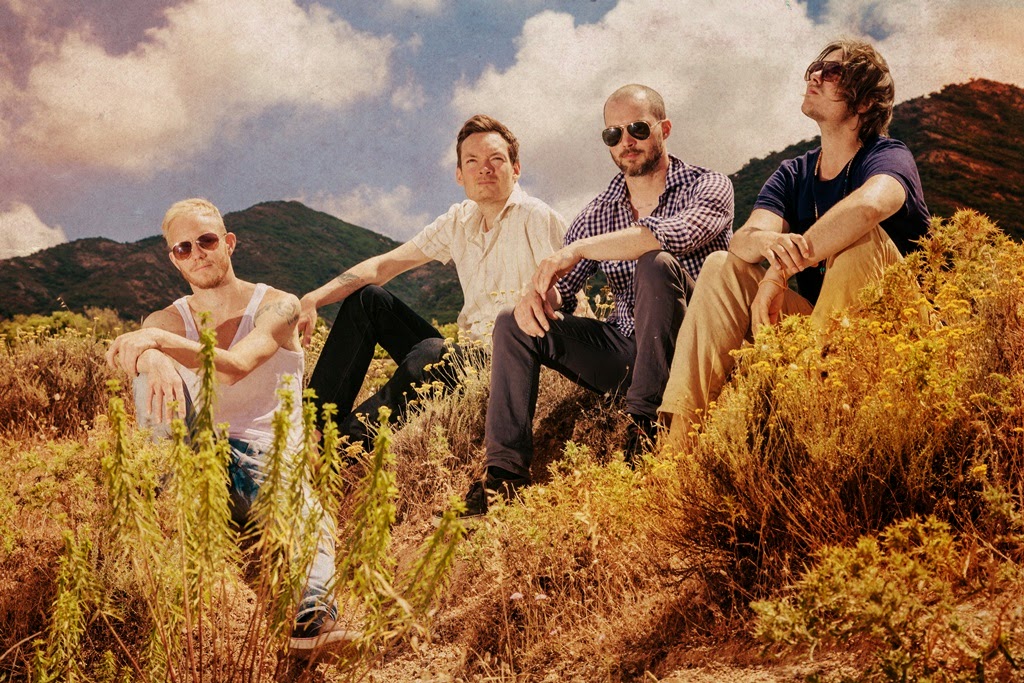
Now, I know that your solo work is mostly just that, solo. However, I didn’t know if anyone else was ever involved on playing any of the material that appears on your solo stuff at all? If so, who is that? Do you have a usual person or group of individuals that you turn to in that case or do you have a kind of revolving cast of characters involved?
They’re all me. I always contemplate having guests for certain parts, but I always finish the tracks before I set up an actual appointment. I work very fast, and always use the first impulses and record right away and if that idea doesn’t work, I ditch it and try another one. If that works, the first take will stay on the recording. So usually, I’m finishing all the essential parts within the span of a few nights. It’s hard to fit anyone else into that workflow.
I know you’re also involved in the killer band Causa Sui. Do you have any other active bands or side projects going on right now?
I just alternate between Causa Sui and the solo stuff. Currently Causa Sui is recording a new album, so that’s the main priority at the moment, but I’m slowly cooking up new sounds for the future.
Have you released any music with anyone other than the bands we’ve already discussed in the past? If so, would you like to tell our readers just a little bit about that here?
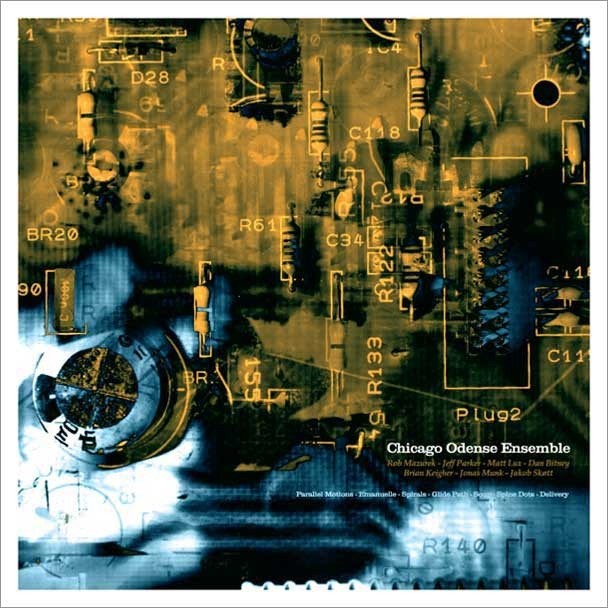
I did one album with Jonas from Causa Sui a few years ago which I’m really proud of, Chicago Odense Ensemble! It’s a fun day of jamming with some of our musical idols from the Chicago post-rock scene like Tortoise and Chicago Underground. It was an amazing day and I wish I’d be able to do more such sessions, but it’s almost impossible to setup. It requires tons of planning, and since we’re running El Paraiso Records now, we just haven’t been able to find the time.
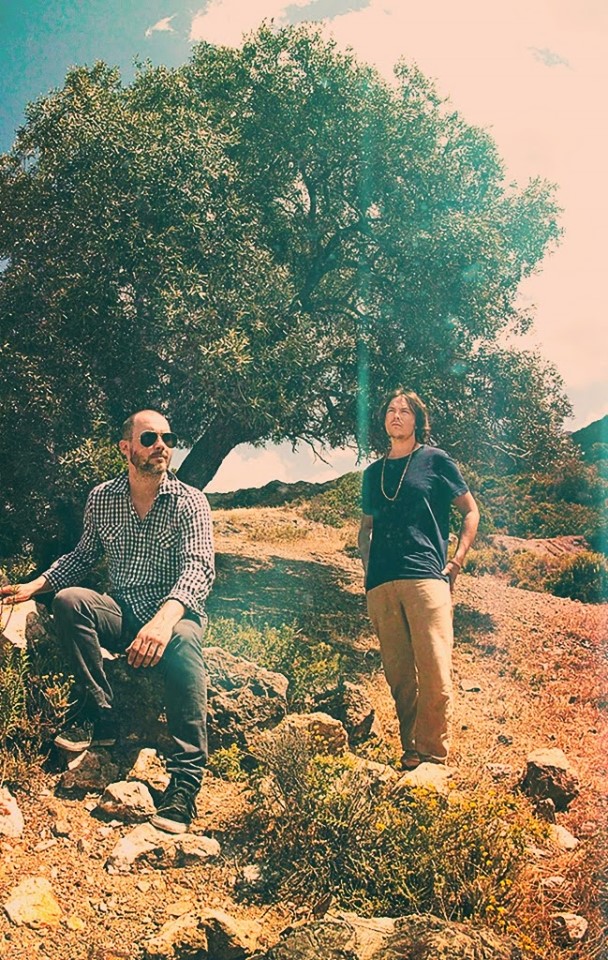
How old are you and where are you originally from?
I’m thirty four and from Odense, Denmark. Currently I’m living in Copenhagen, but Causa Sui still records in Odense, so I travel there about once a month.
What was your home like growing up? Was there a lot of music? Were either of your parents or any of your close relatives musicians or maybe just extremely interested/involved in it?
The way I remember it, we were always listening to something at home when we were eating breakfast or playing around. Sweeping through my parent’s record collection recently I found a live Doors album, as well as a 70’s Klaus Schulze record and some of the Popol Vuh soundtracks for Werner Herzog’s films, so stuff like that’s probably stuck with me. When I started really getting into music as a teenager in the late 90’s the family would drive to Flensburg in Germany to shop, and I’d hit the Musikpalast which was an amazing used record store. They had a huge section of krautrock, so I would dip heavily into the Sky and Brain releases. So yeah, I feel like I’ve been privileged to have been exposed to great music early on.
What was your local music scene like where you grew up? Did you see a lot of shows or get very involved in that scene at all? Do you feel like it played a large or important role in shaping the way you perform at this point or your musical tastes?
I started playing with Jonas and Jess early on. We were only about ten or twelve years old, so everything we did shaped what we’re doing to day in Causa Sui now. None of us ever played in any other bands, but that was probably due to the fact that not a whole lot of other people in Odense were into music that was even a little bit experimental at that time.
What do you consider your first real exposure to music?
I went to Midtfyns Festival in 1994 and saw Therapy? and Rage Against the Machine on the same day. It blew my mind! I had listened to their albums, but seeing stuff like that in an open air setting with drunk people everywhere was mind-blowing. I was fourteen, and I think I even had a few beers that day as well. Freedom rock!
If you were to pick a moment where everything seemed to change for you musically and your mind was opened to the infinite possibilities that it presents, what would it be?
Seems like that festival experience would fit that description as well.
What was your first instrument? When and how did you get it?
I got my first drum kit when I was ten. My brother went to the US for a year, so I got a drum kit, moved it into his room and turned it into a rehearsal space!
When did you decide to start writing and performing your own music? What brought that decision about for you? Or was it more of an outgrowth of being given an opportunity to create something of your own and express yourself in a new way?
I’ve always been doing it. I’ve been noodling with recording forever. It started on simple tape decks at first, I had a 4-track at some point where I recorded drum-loops, and I got into producing with computers early on. I’ve used different pseudonyms and released albums since the early 2000s. But yeah, it was a very conscious decision to start working in a new way that led to using my birth name.
Is there any sort of code, creed, ideal, or mantra that you live by musically, spoken or unspoken?
For my solo stuff it’s mostly about not over-thinking it. I try to put my own criticism and editing aside, and just let it flow throughout every step of the process. AMOR FATI! Which means the love of fate; embracing everything that comes in your path, good or bad.
Where are you located at this point? How would you describe the local music scene there?
I’ve always disliked the need to push everything into “scenes”. It seems like something you don’t really need to formalize to understand and define what you’re doing, and especially to limit it to a certain group of people. Hopefully creativity flows through such limits, because it certainly doesn’t need it, especially not today. Local scenes are a thing of the past, there isn’t a special ‘sound’ coming from anywhere anymore – it’s all wired together, and everything emerges from everywhere, so you can easily tap into your grid and ride the feedback of that circuit. There’s a lot more than location and physical space available now, why not tap into that instead?
Do you feel like you’re very involved in that scene? Do you book or attend a lot of shows or anything?
No, I’m not really a part of any of anything other than our label. Whatever local scenes are going on don’t seem relevant to me. Like I said, I don’t really understand the need. It’s mostly useful for journalists and promoters; people who benefit from labeling things.
Has the local scene played an integral role in the sound, history or evolution of your own music or do you feel like you would be doing basically what you’re doing and sound basically like you do regardless of what you were surrounded with or where you were at?
It would probably sound the same no matter where it was done. It’s an internal and solitary process.
Are you involved in recording or releasing music for any else? Are you involved in any labels or anything like that? If so, can you tell us a little bit about that here briefly?
I run El Paraiso Records along with Jonas Munk. It’s great, we’re tapping into that grid, finding like-minded souls around the globe and releasing their stuff. So far, we’ve released music from two bands that we weren’t involved with ourselves: Papir and Psicomagia. I’m proud of that, because it’s a different aspect, you’re helping someone else down their own path, but using your experience to help them make the right decisions along the way. It’s amazing to see a band like Papir bloom the way they have!
You have any extremely interesting and varied sound from project to project, but how would you describe the music that you release under your own name to our readers who may have even heard some of your other bands but not your solo work?
It’s drums and synthesizers! Lots of drums and lots of synthesizers! If people can dig that idea, they’ll probably dig the albums!
As I mentioned you have an interesting pallet of sounds and genres that you draw from so I’m curious to hear who you would cite as your major musical influences?
I like anything that has ambition, anyone who’s done stuff greater than they were able to actually bring into the world, but where the greatness of their ideas still shines through. I named the first track after Michael Mann’s The Keep; a movie that Tangerine Dream did an awesome score to. It’s deeply flawed on many levels, but it’s dripping with ambition! So, in respect to the late Edgar Froese, who died a few days ago, I’ll go with him. His way of doing arpeggios changed music! I saw him in a three-hour long concert last year. It was way too overloaded, but still, sometimes you need too much of a good thing!
What’s the songwriting process like for your solo material? Is there any sort of formula or process that you usually follow when you’re writing?
I start with recording a simple drum pattern, then add synths and effect one-by-one. I try to put myself into the role of someone improvising with me, so basically I’m jamming and tweaking knobs in an improvised setting. When I edit all the parts together, I take on more of the role of a producer, but I try to keep all the weird blobs and bits that the drums and machines spit out. All the not-so musical stuff is very important as well, so I actually try to enhance all that sometimes, adding to the flaws to create interesting peaks and twists.
What about recording? I think that most musicians can appreciate the end result of all the time and effort that goes into recording when they’re finally holding that finished product in their hands. But getting to that point though, getting things recorded, and sound thing way you want them to, even seemingly small things like getting those recordings mixed and mastered properly can prove to be monumentally difficult tasks sometimes. What’s it like recording for you?
That’s exactly what I try to limit to a minimum, and after working with music for years it’s finally working. I use the mixing process as a creative tool, not to polish the recording, but rather to tear the predictable stuff apart.
Do you like to take a DIY approach to recording where you handle most aspects of the recording of your own time and turf, with your own equipment so that you don’t have to work with anyone else or compromise on the sound with them? Or, do you like to head into a studio and let someone else handle that headache so that you can just concentrate on the music and playing?
Jonas sets up the mics, because he’s learned a lot from recording and mixing Causa Sui, so I get an awesome basic drum sound from him. But besides the technical recording, I do all the mixing and tone shaping myself. I really wanted a raw drum sound, what my kit sounds like in my head, that’s the sound on Amor Fati and Taurus Rising, raw drums! Even the synths sometimes sound like drums!
Is there a lot of time and effort that goes into working out exactly what a song’s going to sound like before you record it, with every part of the arrangement meticulously worked out beforehand, or do you like to get a good skeletal idea of what it’s going to sound like, while allowing for some change and evolution during the recording process where you feel necessary?
I just have a simple sequence that I play along with, so that’s all I really have as I go along. With Causa Sui we use the same approach, just playing along but we refine the ideas through time gradually, also often holding onto off-beat weird stuff and turning it into an integral part of the songs. We record everything we do, listen to it and then try to enhance the good stuff. But it’s all about the vibe and we always leave room for improvisation when we record the final takes that end up on the albums. The Pewtør Sessions albums are all straight improvised for example, whereas the others are often more refined through time.
I know a lot of people take this question wrong considering the laws around the globe at this point, but people have been tapping into the altered mind states that drugs produce for thousands of years at this point. Do psychoactive or hallucinogenic drugs play a large or important role in the songwriting, recording or performance processes for you?
I’m more interested in the way that music or images can open creative pathways in the mind than actually altering the mind with chemicals. The potential in creative energies created with your hands is much more powerful than blasting your brain cells. I also like the way you can actually feed off creative stuff other people are doing – like listening to music, and then carry that energy into your own projects. I hope people use the states of mind they get from listening to our music to create stuff of their own, I’m always happy when some band sends music that’s inspired by Causa Sui for us to listen to.
Can you tell us a little bit about the recording of your back catalog for a second here. Your first solo release that I know of was 2012’s Doppler LP for El Paraiso Records. Can you share some of your memories of recording that first material with us here? Was that a fun, pleasurable experience or more of a painstaking proposition for you at that point? When and where was that recorded at? What kind of equipment was used? Who recorded it?
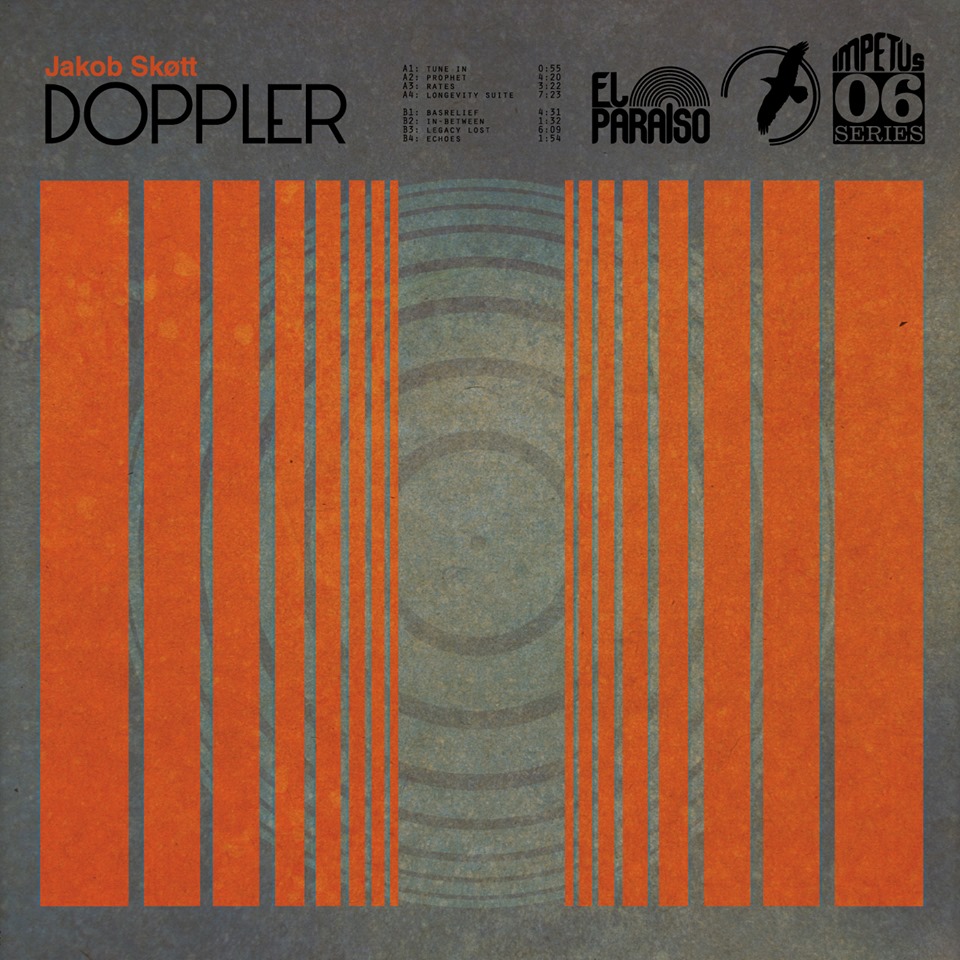
I really wanted to break free of making computer music on my own, so I got a Prophet 600 which is an analogue polysynth and it just came out of noodling around with that. That Prophet is pretty much about eighty percent of the sounds on that album, with just a small chain of effects added. I recorded it during the nighttime in the months after my son was born, so it was done in a totally secluded state of mind, bleeping the very unpredictable synth along for hours. I recently just plugged it in again for the first time since that album and it took me right back. I love the character of it, it’s muddy and sort of unlike most polysynths, buzzing and scrambling along in its’ own way.
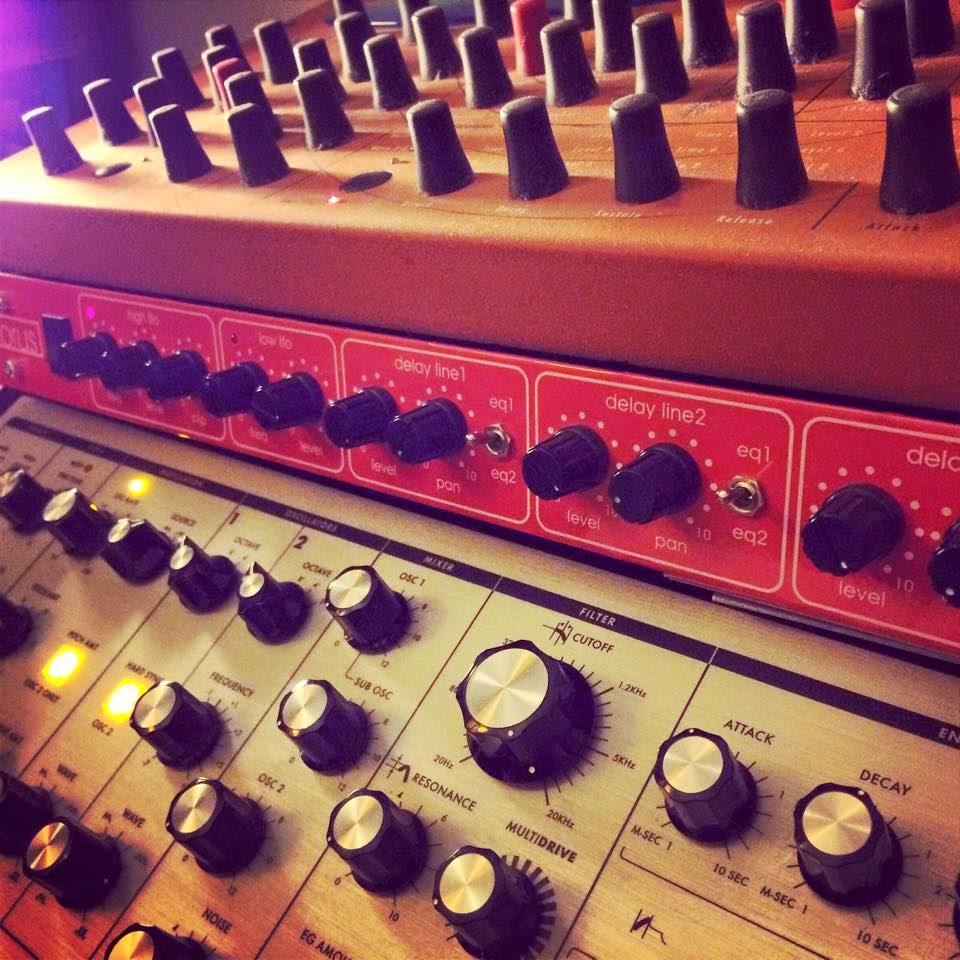
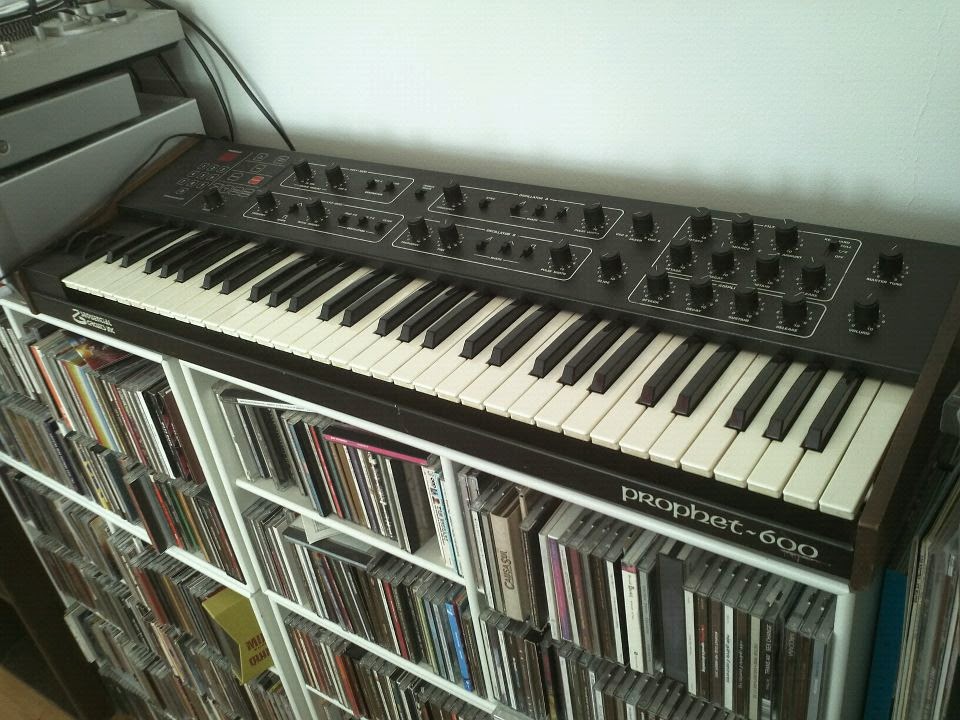
You took some time off in 2013 for other stuff but were back with a vengeance last year (2014) with not one but two full-length albums, both for the El Paraiso label again. The first of those releases was Amor Fati. Was the writing or recording of the Amor Fati material very different than your first solo album? Where and when was it recorded? What kind of equipment was used? Who recorded it?
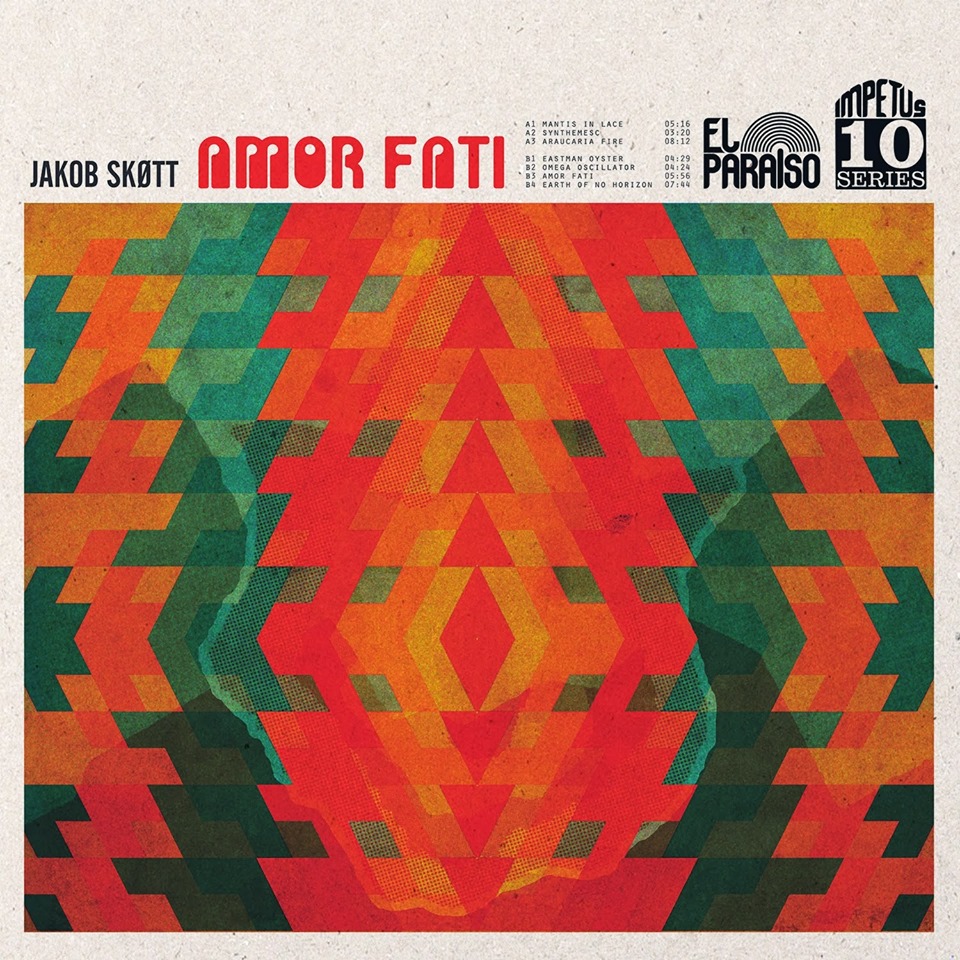
That’s when I added the drums. I got a Moog monosynth, which was just way fatter and warm sounding than the Prophet, so after making a few tracks I realized I could add a full booming drum sound on top of it. The monosynth lends itself to heavy riffs much better, rather than chords and textures. The album was done during a three month Paternity leave in the summer of 2013 with the birth of my second child. I just hung out with the baby and played music when she was asleep. It was awesome to have a few such precious things which inspired each other and I just added all of that to that sound, all of the impulses and emotions I could think of at the time.
Your second release in 2014 was Taurus Rising, as always for El Paraiso. What was the recording of the material for Taurus Rising? I’m sure you can guess by now but, when and where was the Taurus Rising material recorded and what kind of equipment was used? Who recorded Taurus Rising?
It was recorded the following summer, 2014. I really wanted to reproduce the awesome states of mind from Amor Fati; I needed to go back. Also, I had learned a lot about producing by doing the first drum album, so it was a breeze. From the time I laid down the initial ideas to the point where I had the vinyl record in my hands only took about five months! I used exactly the same gear, except I added a fuzz pedal.
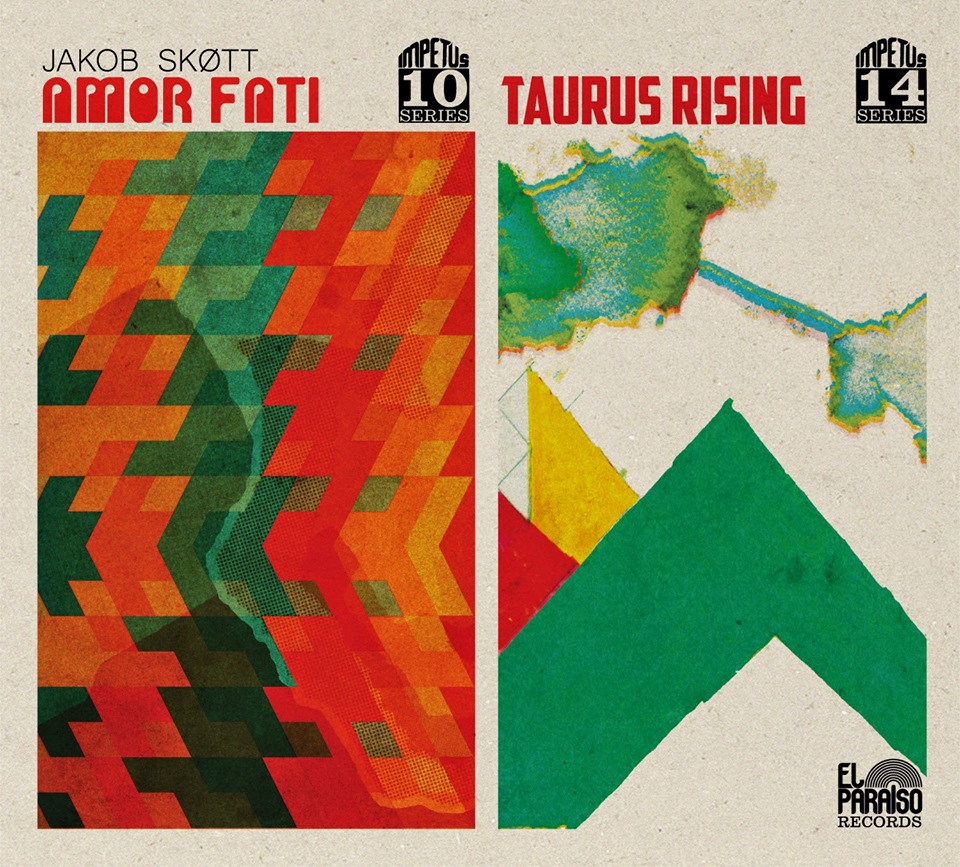
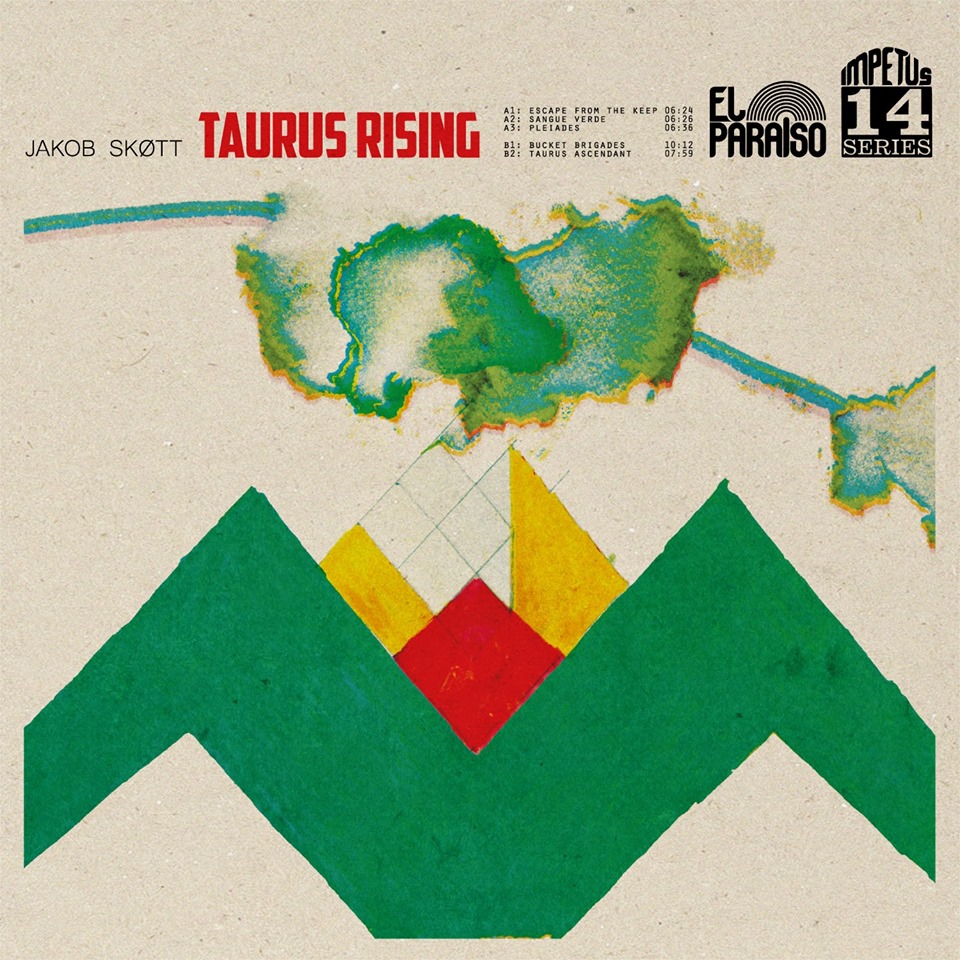
Do you have any music that we haven’t talked about yet, maybe a single or a song on a compilation that I don’t know about?
Nope, the recent stuff is just the three albums. In my view anything worth doing is worth doing in a long-playing format.
Where’s the best place for our interested readers here in the US to pick up copies of your stuff? I try and provide our readers with as many possible options as I can to pick up imports!
All El Paraiso albums are distributed by Forced Exposure in the US. Plenty of shops carry them, so just ask your local store if they carry it and if not, ask them to order it!
What about our international and overseas readers?
There’s always our own webshop. Danish shipping is insanely expensive, but we’ve begun adding stuff like limited 10-inches, art prints and stickers to the packages to make it worthwhile.
Are there any major plans or goals that you’re looking to accomplish in 2015?
A whole lot of new El Paraiso releases and artists, it looks like we’ll be doing a bunch of albums, including a new Causa Sui record that we’re just about to start recording. It’s a heavy follow-up to Euporie Tide, filled with new ideas and fuzztones. Recording that is the most important thing!
What, if anything, do you have planned as far as touring goes at this point?
We don’t tour, even with Causa Sui. It’s simply a matter of priorities. When you’re doing that kind of music, you do it besides day jobs or family, so it’s not really something we’re interested in at the moment. We try to play one or two select shows each year where we do something new and exciting each time. I’ve never understood why any band would play the same songs or even with the same approach for weeks anyways.
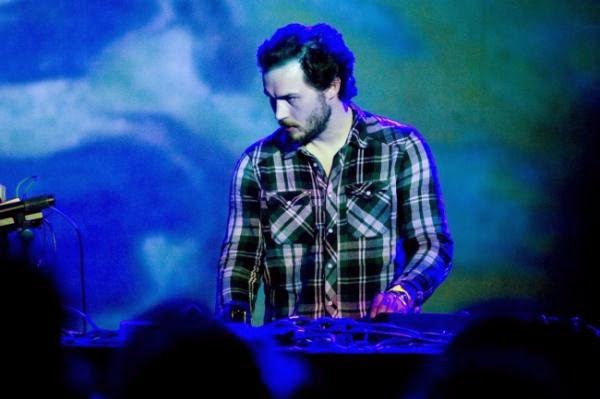
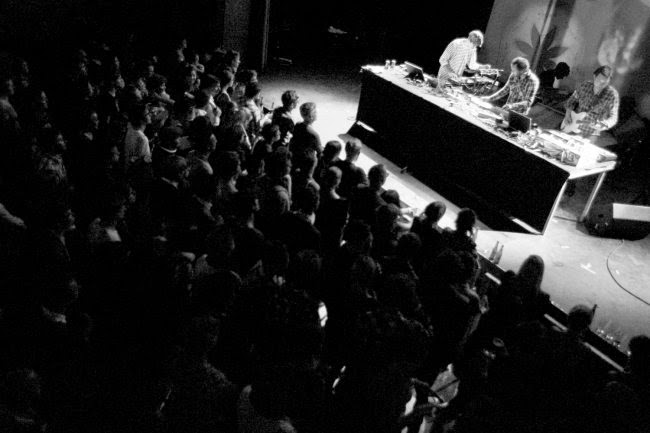
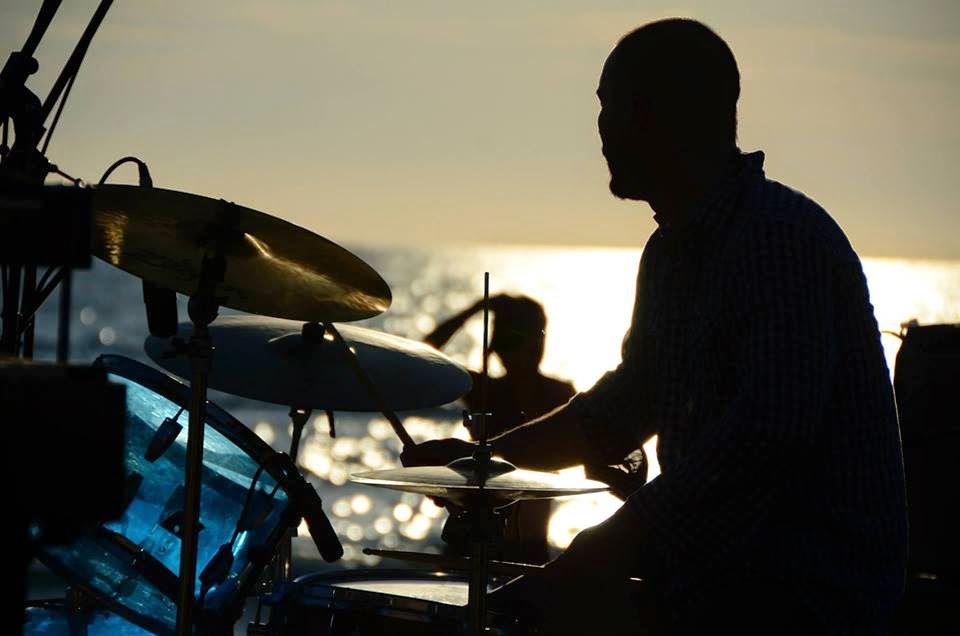
Do you spend a lot of time out on the road? Do you enjoy life out on the road?
I enjoy it when we go to those one or two shows. Last year we went to Berlin for the first time and that was a totally overwhelming response. We also went to Duna Jam, which is a great generator party on a sunny beach in Italy; perfect for Causa Sui, with people just chilling in the sand while the sun sets in the background and the waves come crashing in.
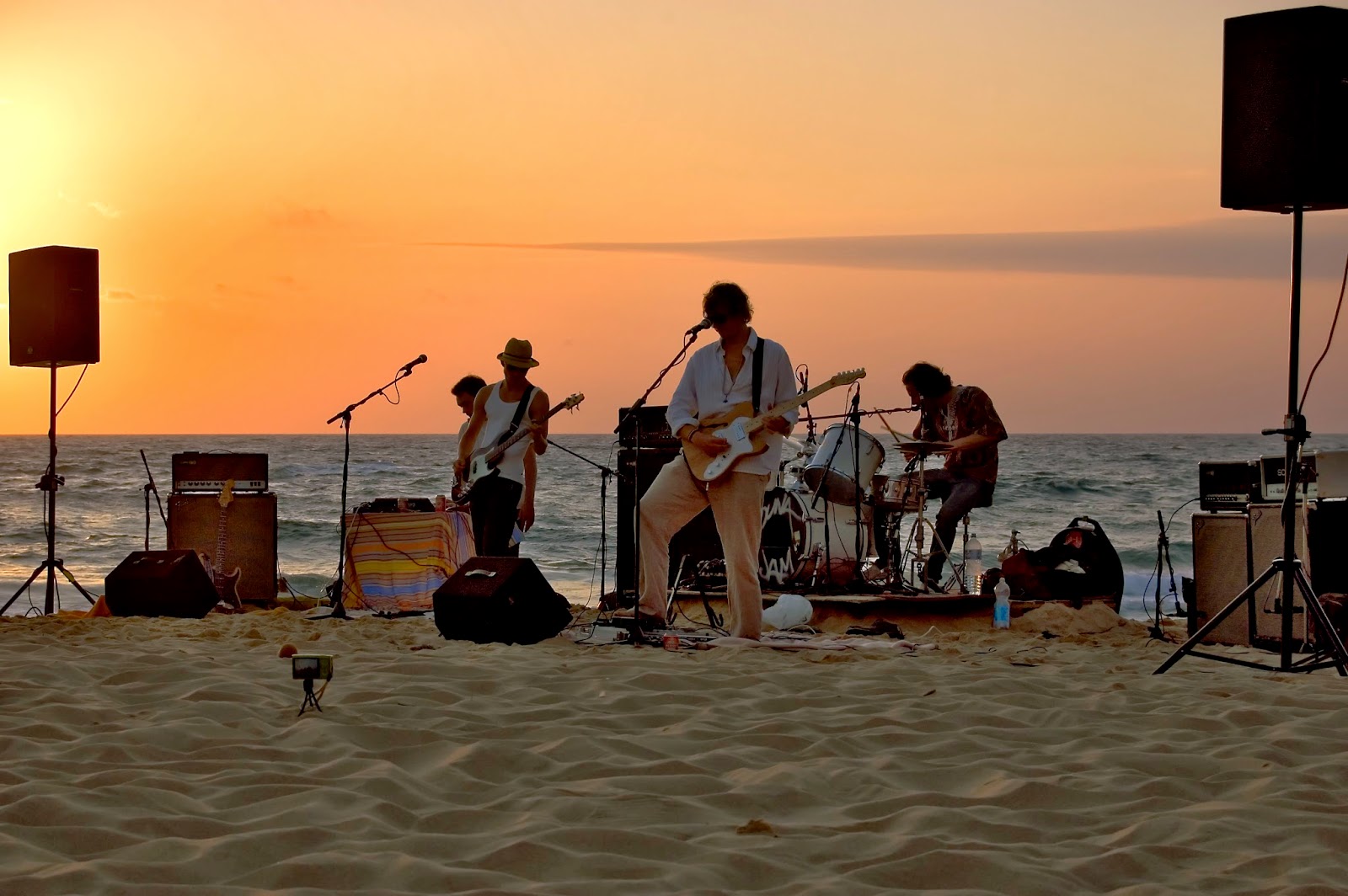
Who are some of your personal favorite bands that you’ve had a chance to play with over the past few years?
We’ve always been closely connected to Colour Haze, not only musically but because Stefan released four of our albums. They’re amazing.
Do you give a lot of thought to the visual aspects that represent your music to a large extent? Stuff like flyers, posters, shirt designs, cover artwork and that kind of thing? Is there any kind of meaning or message that you’re attempting to convey with the visual side of your music?
That’s always been very important. I do all that stuff myself, and building the El Paraiso aesthetic is definitely something that’s very important. It may seem elitist to some folks, but actually I think it’s all about enhancing the music. Someone wrote a great review of Papir III because he picked up the album solely based on the artwork, and that’s a really great thing, having artwork that allows people to dive deeper into the music and somehow gives it a face to the world. It creates continuity between releases and it lets people feel that synthesized-drone music is connected to heavy fuzzy stoner rock as well as pre-fusion jazz. It creates continuity on a bunch of levels, and that whole idea of a flow or a continuation is very important to all of us.
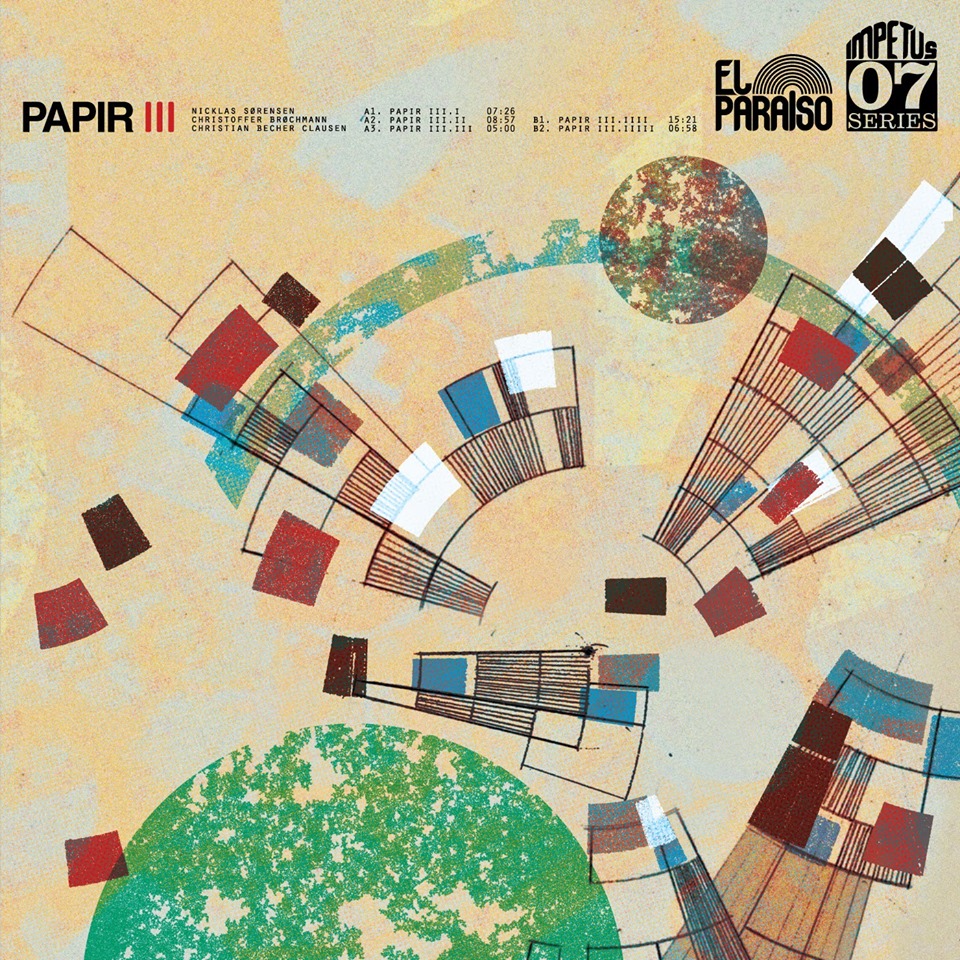
With all of the methods of release that are available to musicians today I’m always curious why they choose and prefer the mediums that they do. Do you have a preferred medium of your release for your own music? What about when you’re listening to or purchasing music? If you do have a preference, what is it and can you tell us a little bit about why that is?
I think every media serves a purpose. I still buy a lot of CDs because they’re handy, plus they don’t get lost the same way digital files or playlists which are more fleeting do, but obviously I’m very much into vinyl. Everything from the way it demands attention with its’ large bulky format, to the way it lends itself to dynamic music. A vinyl master is always much quieter than the masters you use for digital formats, it’s a technical limitation that makes people think about dynamics differently. Vinyl is tactile on every level.
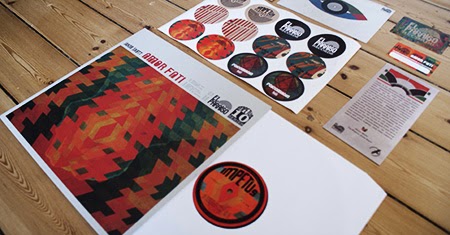
I grew up around my dad’s killer collection of music and I was encouraged by both of my parents to listen to just about anything that interested me from a pretty young age. I think it was my dad taking me out on the weekends that left the biggest impression though. He would take me out to the local record shops and I’d pick up random crap I was interested in listening to. I developed a whole ritual for listening to music and it has kind of grown into a sort of obsession as I’ve gotten older. Having something physical to hold in my hands and experience along with what I’m hearing has always provide me with a more complete listening experience for me. Do you have any such connection with physically released music?
Yeah, I still get my best kicks from crate digging. When I discover something new that I buy and take home, that’s still an awesome experience.
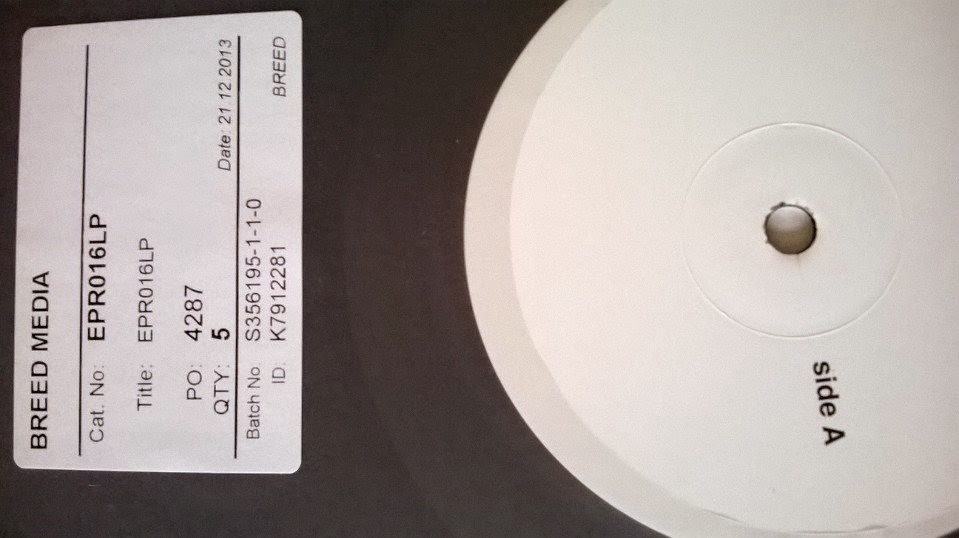
Like it or not at this point, digital music is just about everywhere these days. That’s just the tip of the iceberg though, when you combine digital music with the internet, that’s when things get really interesting. There are going to be upsides and downsides to any given situation and I think it mostly depends on how you look at and deal with things. On one hand, people are being exposed to all this really amazing music that they’re surrounded by for the first time. Plus, the digital age has allowed for an unparalleled level of communication between bands and their fans. On the other hand though, I think a lot of people have begun to see music as a sort of disposable form of entertainment to be used and then discarded when you’re done with it. It’s become a sort of free soundtrack their lives that they feel like will always be there, whether they pay for it or not. As an artist during the reign of the digital era, what’s your opinion on digital music and distribution?
I think it’s great that so much music is available for preview. That’s what streaming is, simply a preview, it doesn’t let you own the music, you can’t take it home with you, you’re just passing by, so it doesn’t really bother me. Of course I do hate the fact that all the digital channels are making so much money doing so little work. A place like Bandcamp is pretty much a scam. Why do they need ten-percent of everything sold there? It’s not like they’re doing anything that you couldn’t do on a simple webpage. I always rant about Bandcamp whenever someone praises it or asks “why are you not on Bandcamp?” We wouldn’t have been able to continue as a label if we had used their store, so I’m horrified on behalf of labels and artists moving there, empowering Bandcamp even further while cutting their own small profits.
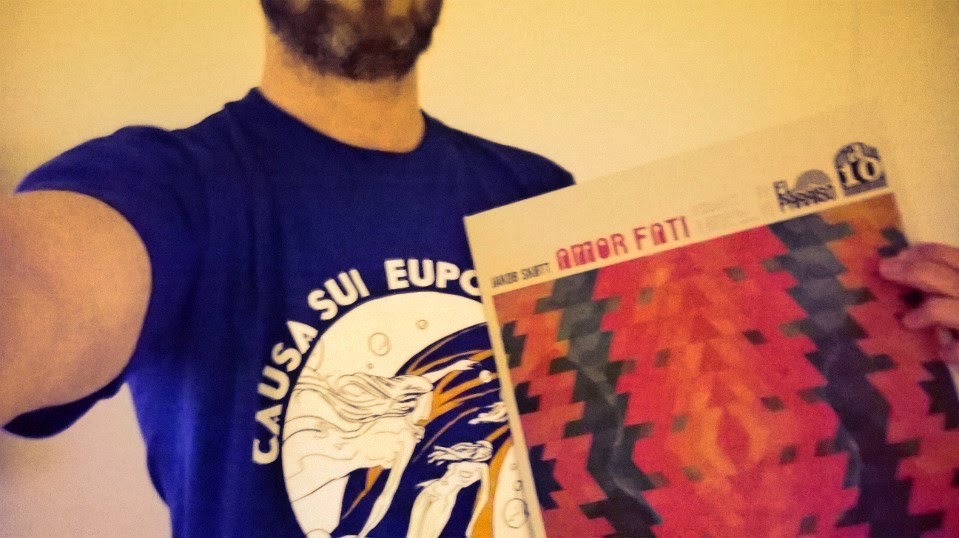
I try to keep up with as many good bands a I possibly can, but I swear there’s not enough time in the world to listen to a quarter of the amazing stuff happening out there right now! Is there anyone from your local scene or area that I should be listening to that I might not have heard of before?
We’re releasing Papir Live at Roadburn soon, and that’s a really amazing live album.
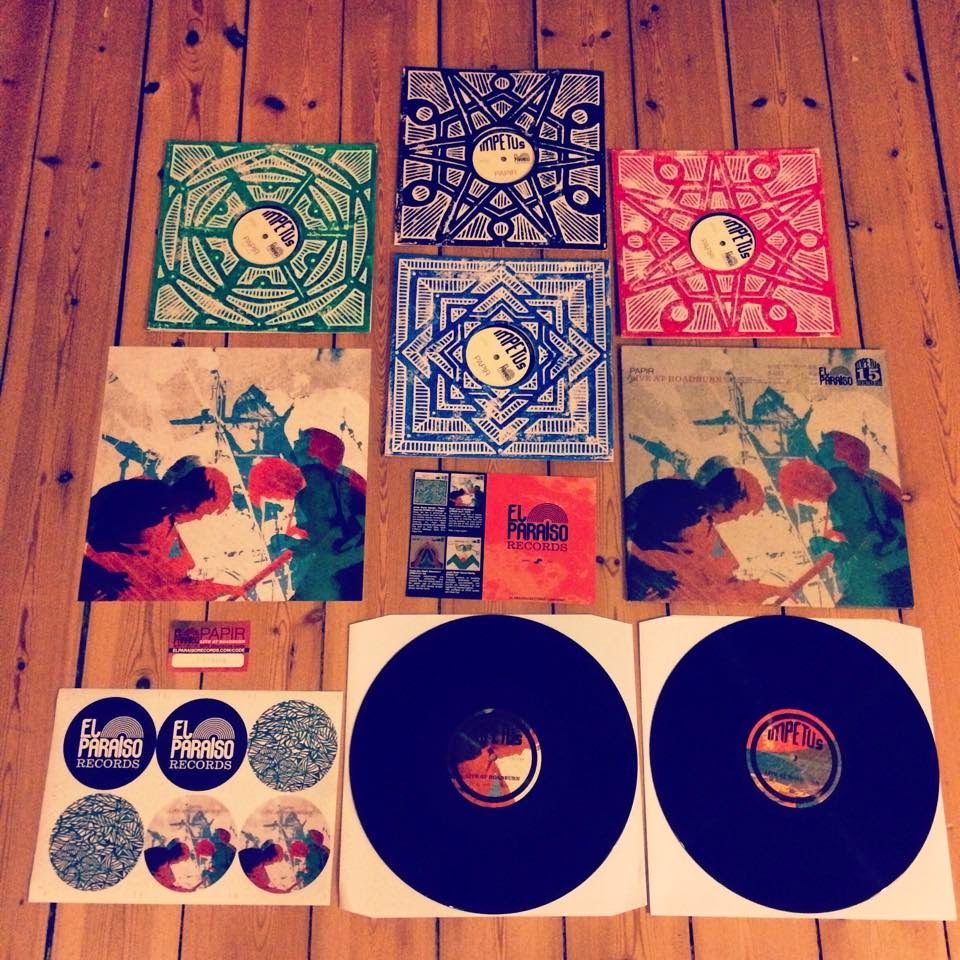
What about nationally and internationally?
Currently I’m listening to new albums by long-standing favorites Colour Haze, Motorpsycho, Rob Mazurek and John Carpenter.
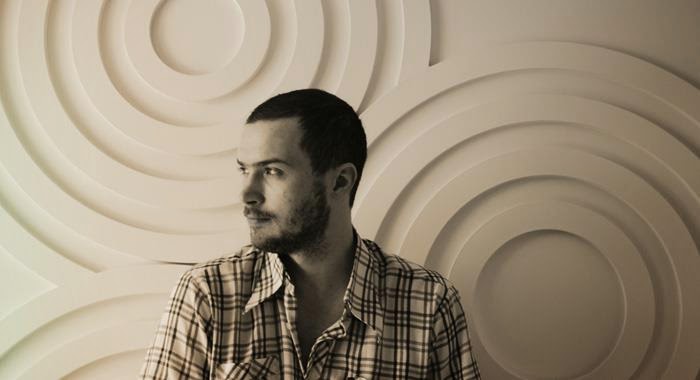
Thanks so much for taking the time to humor all of these questions! Since you’ve been so generous I’d like to open the floor up to you for a minute here. Is there anything that I could have possibly missed or that you might just want to take this opportunity to talk to me or the readers about here?
Thanks for having me. Like I said earlier, I hope that people will use the creative energy they get from whatever stuff they’re getting their kicks from to create something themselves.
– Roman Rathert
DISCOGRAPHY
(2012) Jakob Skøtt – Doppler – CD, 12” – El Paraiso Records (12” limited to 500 copies on Blue Wax Vinyl)
(2014) Jakob Skøtt – Amor Fati – CD, 12” – El Paraiso Records (12” limited to 500 copies)
(2014) Jakob Skøtt – Taurus Rising – CD, 12” – El Paraiso Records (12” limited to 500 copies)

